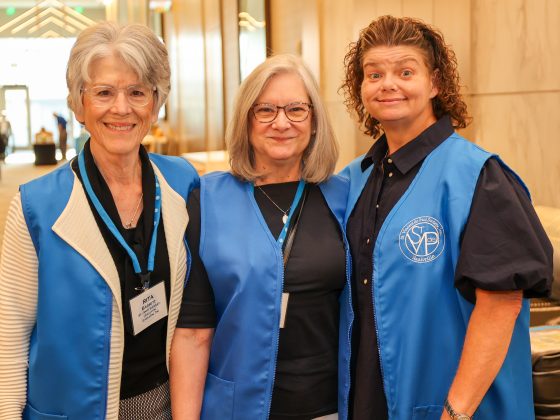Imitation, it is said, is the sincerest form of flattery – a distinction that must be made, because flattery is by its nature insincere. We flatter in order to gain something for ourselves by playing upon another’s vanity. The things we say when flattering might or might not be true, but that isn’t really the point.
By imitation, though, our praise is expressed with a concrete action; we show through imitation that it is the very habits or actions of another that will lead us to the thing we seek to gain. Think, for example, of children learning to play a sport well by trying to imitate the professional athletes they admire.
For Vincentians, what better way could we find to follow Christ’s call to be perfect, just as our heavenly Father is perfect, than to imitate Christ? This, after all, was the very basis of the Society’s founding – to go to the poor, just as Christ Himself had done; to show God’s compassion and love through our actions. In Aristotelian terms, we “become builders by building”. [Nicomachean Ethics, Book II:1]
Christ, then, is not an object of flattery, but is instead our ultimate role model. He is the God who shared our humanity so that He could “fully reveal man to himself.” [Redemptor Hominis, 8] Yet our humility can cause us to shy away from imitating Christ, seeking instead role models closer to our personal experience. In a similar way, that child athlete, however ambitious, will usually try first to imitate an older friend before swinging for the big leagues. For us, our “older friends” include especially the saints and blessed of the Vincentian Family.
In 1838, one of the first Conferences had been studying The Imitation of Christ, but then began reading The Life of St. Vincent de Paul. As Frédéric explained it, our patron “is a model one must strive to imitate, as he himself imitated the model of Jesus Christ.” [Letter 175, to Lallier, 1838] In our day, we also have the holy life of Blessed Frédéric to imitate. Perhaps, as a lay Catholic, he is even closer to us.
The Little Leaguer believes that if he can swing the bat like Ken Griffey, Jr., then he might become a great player on his own. For Vincentians, imitation has a deeper goal, an interior goal. We hope that someday it will be no longer we who love, but Christ who loves through us. [Rule, Part I, 2.1]
We seek, then, not simply to behave like Christ, but “to empty ourselves of self so that God alone may be manifest”. [CCD XII, 247]
Our imitation, it turns out, is not flattery at all. Flattery will get us nowhere. Imitation of Christ will lead us home.
Contemplate
In what way can I better imitate the life of Blessed Frédéric Ozanam?



